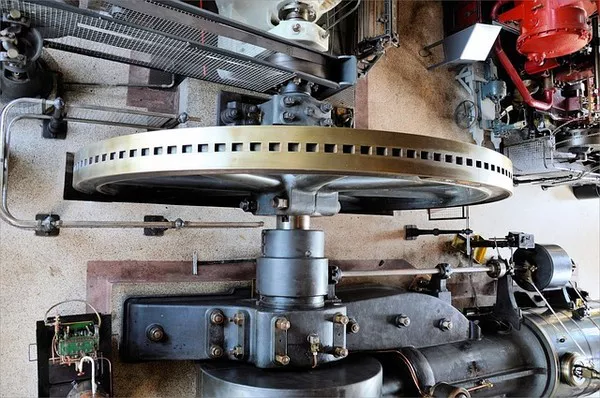As electric vehicles (EVs) gain market share worldwide, the need for fast-charging infrastructure is becoming increasingly critical. Without reliable and widespread fast-charging stations, potential EV buyers might hesitate to make the switch from traditional gasoline-powered cars. Yet, in many areas, public charging stations remain sparse, and many existing chargers are outdated, lacking the latest fast-charging technologies.
To address these challenges, manufacturers are pushing the envelope by developing and deploying Level 3 fast chargers that are compatible with a wide range of EV models. Here’s a look at some of the key players driving advancements in EV fast charging.
Tesla: Pioneering Fast Charging Globally
Tesla has long been a frontrunner in the EV fast-charging space, with its Supercharger network spanning multiple continents. The California-based automaker’s chargers offer a maximum output of 250 kW, enabling quick recharges. Last year, Tesla unveiled its V4 Supercharger in the Netherlands, which features longer cables and maintains the 250 kW capacity, but with enhanced potential for future power increases. Tesla’s ongoing research aims to reach a 350 kW charging capability, further reducing charging times.
ChargePoint: Expanding Global Reach
ChargePoint, a significant competitor to Tesla, operates an extensive network of over 25,000 chargers worldwide, including key locations like Disney World. The company recently announced its latest DC fast-charging platform, the Express Plus Power Link 2000, which boasts an impressive 500 kW output. These stations can simultaneously charge multiple vehicles, offering customizable speeds tailored to different EVs’ requirements, making them a vital addition to the growing EV infrastructure.
Microchip Technology: Revolutionizing Charging Design
Arizona-based Microchip Technology, known for its role in microcontroller production, is now a key player in fast-charging technology. The company designs Level 3 DC fast chargers with power outputs ranging from 50 kW to 350 kW. Their innovative approach bypasses a vehicle’s onboard charger, connecting directly to the battery management system to significantly cut down on charging time. Microchip has introduced new reference designs that streamline the development of scalable EV chargers, further enhancing the charging experience.
Siemens: Delivering High-Powered Charging Solutions
Siemens, a leading German technology firm, offers a range of high-powered EV chargers. The VersiCharge Ultra 175 kW DC charger and the compact SICHARGE D system are among their most notable offerings. The SICHARGE D, capable of delivering up to 400 kW, is designed for public charging on highways and can be equipped with liquid-cooled cables for increased efficiency. These chargers boast over 95% efficiency during peak usage, highlighting Siemens’ commitment to providing reliable and powerful charging options.
Electrify America: Expanding U.S. Charging Infrastructure
Electrify America, primarily owned by Volkswagen, is rapidly expanding its fast-charging network across the United States. The company’s top-tier Green Hyper-Fast chargers offer up to 350 kW of power, while their mid-tier Teal Ultra-Fast chargers deliver up to 150 kW. Collaborations with major EV manufacturers like Hyundai have bolstered Electrify America’s presence, making them a crucial player in the nation’s EV infrastructure.
EVgo: Partnering for Greater Access
EVgo, based in Los Angeles, has established itself as a leader in fast-charging solutions through strategic partnerships with companies like General Motors and Pilot Flying J. EVgo’s DC fast chargers, ranging from 50 kW to 350 kW, are equipped with connectors that support both North American and Japanese vehicles. Their expanding network is helping to increase EV adoption by providing more accessible and reliable charging options.
Blink Charging Co.: Powering the Future
Blink Charging Co., headquartered near Washington, D.C., has grown from consulting into a key player in the EV charging market. The company’s fast chargers, with power supply voltages ranging from 500 to 1,000 V and outputs up to 360 kW, are among the industry’s most powerful. Recently, Blink secured a contract to supply chargers for the U.S. Postal Service’s EV fleet, signaling its growing influence in the EV sector.
ABB: Leading with Versatility and Innovation
European giant ABB is a prominent provider of EV charging solutions across residential, business, and industrial markets. ABB’s Terra HP charging stations, offering outputs between 175 kW and 350 kW, are known for their high efficiency and flexible installation options. The company is also exploring vehicle-to-grid technology, aiming to support electrical grids during peak demand, positioning ABB as a forward-thinking leader in the EV charging industry.
Building a Global Charging Network
With EV sales rising worldwide, the need for a robust fast-charging infrastructure has never been more critical. These companies are at the forefront of developing and deploying the technology necessary to support the growing number of EVs on the road. As public-private partnerships continue to drive the expansion of fast-charging networks, these innovations are crucial in ensuring the success of the global shift toward electric mobility.

